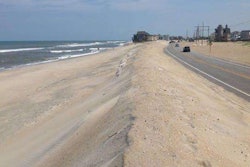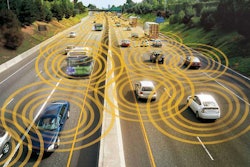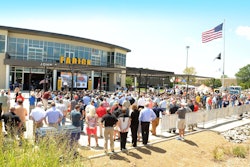Clemson University received $1.4 million in startup financing from the U.S. Department of Transportation for the development of a new Center for Connected Multimodal Mobility that will practically make it possible to eliminate car accidents and travel busy roads without stopping for a traffic light, The Newsstand reports. Mashrur “Ronnie” Chowdhury, a civil engineering professor who is leading the new center, says it could happen in as little as 10 years.
Chowdhury will work with researchers from Clemson, Benedict College, The Citadel, South Carolina State University, and the University of South Carolina to find new ways to create wireless technology for all cars and traffic signals in order to make congestion on some of the busiest roads a thing of the past, wspa.com reports. He expects that all vehicles will soon be able to communicate wirelessly with each other, and with infrastructure and pedestrians.
“Each traffic signal will have a highly intelligent brain, a controller, that is controlling the light in real time based on existing and predicted vehicular and pedestrian demand,” he told The Newsstand. “In real time, signal timing at each intersection will be optimized and coordinated to improve corridor-wide traffic flow. Each signal will communicate what speed each vehicle should drive to avoid having to stop.
“We are working very closely with the South Carolina Department of Transportation,” Chowdhury told the newspaper. “We will provide the software and infrastructure that we develop for the center to the public. The roads will be a real-world test bed and laboratory where we do our research on connected and driverless vehicles, but it also benefits the state.”
The researchers will have access to 41,500 miles of interstate, federal, and state highways, and secondary roads in South Carolina, giving them a wide variety of road types. Clemson researchers have already been testing connected-vehicle technology on a 10-mile stretch of Interstate 85.
“The collaborative research that will be done as part of this center will help create the connected and automated, multimodal transportation technologies that will foster growth in the state and nationwide economy,” James R. Martin, chair of the Glenn Department of Civil Engineering at Clemson, told reporters. “I congratulate Dr. Chowdhury for leading this effort.”
Tanju Karanfil, Clemson’s vice president for research, told reporters that the grant will help all the collaborating institutions take a major leap forward in transportation research and training the next generation of transportation professionals. “The center will be designed to link higher education and industry throughout South Carolina,” he said. “It will help incubate a business ecosystem centered on the quickly growing field of connected, multimodal transportation technologies.”
Chowdhury told the news agency that another $6.4 million in continued funding for the center is possible over the next five years. Academic and industry advisory boards will oversee the center and evaluate its progress.












